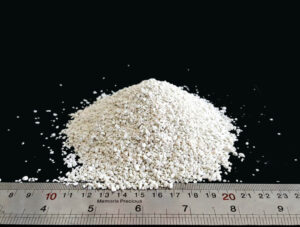Large Resources, Natural Formation, and Industrial Applications
Introduction to Bentonite
Bentonite is a versatile, naturally occurring clay primarily composed of montmorillonite, a mineral known for its high absorption and swelling properties. Thanks to these qualities, it is used across industries ranging from drilling and construction to pharmaceuticals and cosmetics.
With large global reserves, bentonite plays a crucial role in oil and gas drilling, foundry applications, cat litter, agriculture, and environmental protection. In this article, we examine the world’s largest bentonite resources, its natural formation process, and its diverse industrial uses.

Major Bentonite Resources Around the World
Bentonite deposits occur in many countries; however, the United States, China, India, Turkey, and Greece hold the largest reserves. These regions dominate global production, supplying high-quality bentonite for both commercial and industrial use.
-
United States – Leading Producer
The U.S. is the world’s largest bentonite producer, with vast reserves in Wyoming, Montana, South Dakota, and Texas. Wyoming’s deposits, in particular, are among the richest worldwide and valued for superior swelling capacity and purity. -
China – Abundant Deposits for Industrial Use
China’s extensive reserves lie primarily in Inner Mongolia, Xinjiang, and Guangxi. The country produces high-grade bentonite for ceramics, drilling fluids, and water treatment, while also meeting significant export demand. -
India – High-Quality Sodium and Calcium Bentonite
India, with deposits in Gujarat, Rajasthan, and Andhra Pradesh, is a major supplier. Gujarat contains large reserves of both sodium bentonite (high swelling) and calcium bentonite (high absorption). -
Turkey – Major Supplier to Europe and the Middle East
Turkey holds substantial bentonite reserves in Ankara, Çankırı, and Ordu. Due to its geographic position, it provides European and Middle Eastern markets with quick, cost-effective supply. -
Greece – Europe’s Largest Bentonite Deposits
Greece, especially the island of Milos, produces high-quality bentonite. This material is highly valued in construction, civil engineering, and environmental projects.
How Bentonite Forms in Nature
Bentonite originates from volcanic ash that undergoes weathering and alteration over millions of years. Its formation follows three main stages:
-
Volcanic Eruptions
Initially, volcanic ash—rich in silica, alumina, and minerals—settles on land or in water after eruptions. -
Chemical Alteration by Water
Over time, ash minerals react with water through chemical weathering and hydrothermal processes, forming montmorillonite. -
Compaction and Deposit Formation
Finally, geological forces compact the altered ash into thick bentonite layers in sedimentary basins. These deposits are classified into two primary types:-
Sodium Bentonite – high swelling capacity, ideal for drilling fluids and sealing applications.
-
Calcium Bentonite – lower swelling, excellent adsorption properties, suited for purification and cosmetics.
-
Industrial and Commercial Uses of Bentonite
Because of its swelling, binding, and absorbent characteristics, bentonite is essential for numerous industrial and environmental processes.
1. Oil and Gas Drilling (Drilling Muds)
Bentonite improves drilling efficiency by cooling and lubricating drill bits, carrying rock cuttings to the surface, and preventing borehole collapse through wall sealing. Sodium bentonite is preferred due to its viscosity and swelling properties.
2. Foundry Industry (Molding Sands)
In metal casting, bentonite acts as a binder, enhancing mold strength, ensuring smooth finishes, and withstanding high temperatures.
3. Civil Engineering and Construction
Bentonite seals tunnels, dams, and underground structures, preventing leakage. It also aids soil stabilization and serves in waterproofing membranes for landfills, reservoirs, and groundwater protection.
4. Water Purification and Waste Treatment
In water treatment, bentonite removes heavy metals and pollutants from industrial wastewater and municipal supplies, offering an eco-friendly alternative to synthetic chemicals.
Commercial Uses
1. Cat Litter
Sodium bentonite, with its high absorbency and clumping ability, is widely used in clumping cat litter for easy cleanup and odor control.
2. Cosmetics and Skincare
Bentonite clay appears in facial masks, soaps, scrubs, and hair care products, where it absorbs oils and impurities.
3. Pharmaceuticals and Detox Products
It is included in medicinal detox treatments, antacids, and wound dressings.
4. Agriculture and Animal Feed Additives
Bentonite improves soil moisture retention, prevents erosion, and serves as a binder in animal feed, enhancing digestion.
5. Paper and Paint Industry
It acts as a filler in paper production and improves viscosity and stability in paints.
Environmental Benefits
Bentonite supports environmental protection by aiding soil remediation, reducing water pollution, and offering a biodegradable, non-toxic alternative to synthetic materials.
Future Trends
Demand for bentonite is increasing due to growth in oil and gas exploration, eco-friendly building materials, natural health and beauty products, and improved mining technologies. These trends are expected to sustain global market growth for years to come.
https://iranmineral.net/gilsonite-5-10-ash-article/

